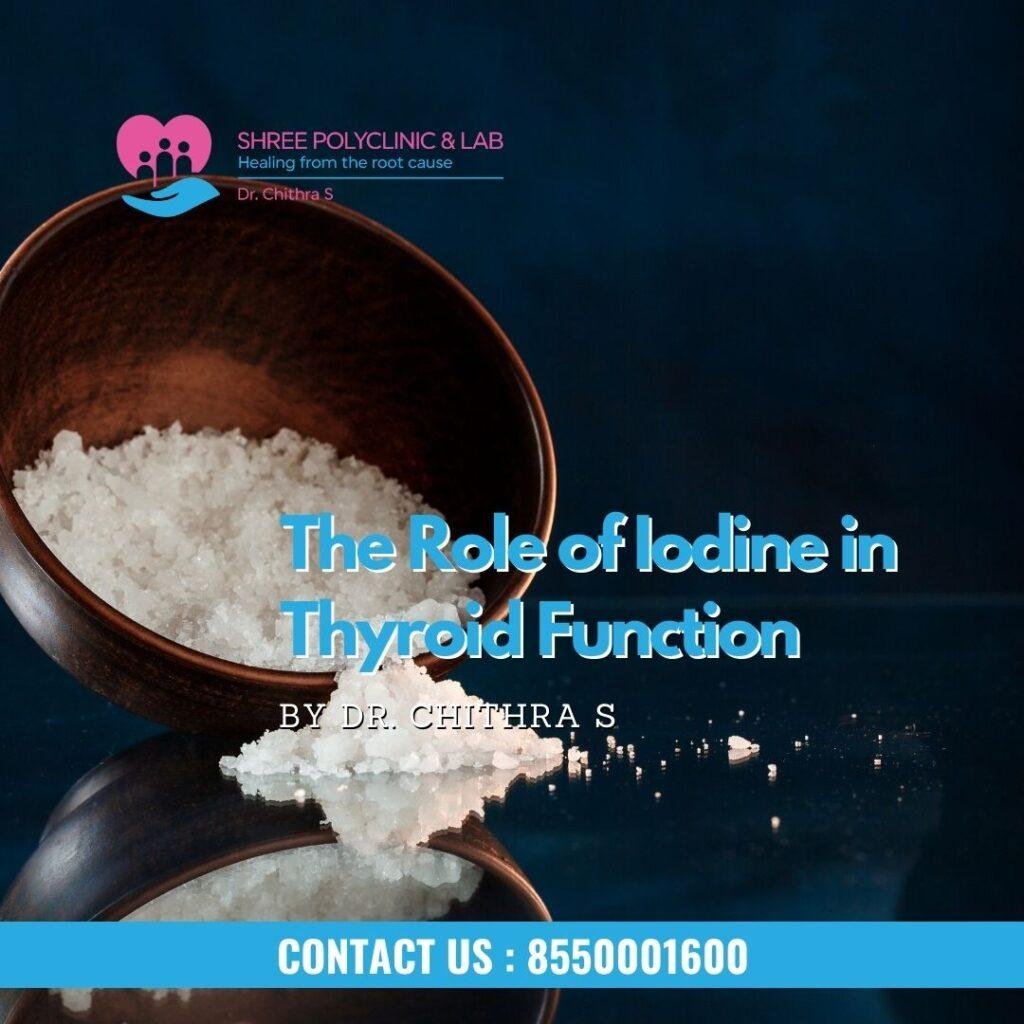Introduction
The thyroid gland plays a crucial role in regulating metabolism, energy levels, and overall health. One essential nutrient for proper thyroid function is iodine. A deficiency in iodine can lead to hypothyroidism, goiter, and other serious health issues.
In this blog, we’ll explore the importance of iodine for thyroid health, the risks of iodine deficiency, and tips to maintain adequate iodine levels for optimal well-being.
Why Is Iodine Important for Thyroid Health?
Iodine is an essential trace mineral that helps the thyroid produce two key hormones:
- Thyroxine (T4)
- Triiodothyronine (T3)
These hormones regulate:
✅ Metabolism and energy production
✅ Brain function and development
✅ Body temperature regulation
✅ Heart rate and digestion
Without sufficient iodine, the thyroid gland struggles to produce these hormones, leading to thyroid disorders such as hypothyroidism, goiter, and developmental issues in children.
Effects of Iodine Deficiency on Thyroid Function
Iodine deficiency is a major cause of thyroid dysfunction. Here are the most common issues caused by low iodine levels:
🔴 Hypothyroidism: Leads to fatigue, weight gain, depression, dry skin, and hair loss.
🔴 Goiter: An enlarged thyroid gland, causing visible swelling in the neck.
🔴 Cretinism (in newborns): A severe condition that affects brain development in infants born to iodine-deficient mothers.
🔴 Mental impairment: Lack of iodine during pregnancy can lead to reduced IQ and cognitive difficulties in children.
Pregnant women, children, and individuals with thyroid disorders are at higher risk of iodine deficiency.
How Much Iodine Do You Need?
The recommended daily intake (RDI) of iodine depends on age and life stage:
👶 Infants (0-6 months): 110 mcg
👧 Children (1-8 years): 90 mcg
🧑 Teens & Adults (9-50 years): 150 mcg
🤰 Pregnant women: 220 mcg
🤱 Breastfeeding mothers: 290 mcg
Most people meet their iodine needs through dietary sources, but iodized salt is an important alternative in iodine-deficient regions.
Best Natural Sources of Iodine
To maintain a healthy thyroid, include iodine-rich foods in your diet:
🥦 Seaweed (kelp, nori, wakame) – One of the richest natural sources of iodine.
🧂 Iodized salt – A widely available and reliable source of iodine.
🐟 Seafood (shrimp, cod, tuna, salmon, oysters) – Naturally rich in iodine.
🥚 Eggs – The yolk contains a good amount of iodine.
🥛 Dairy products (milk, cheese, yogurt) – A significant source of iodine in many diets.
🌰 Nuts (Brazil nuts, almonds, walnuts) – Support thyroid health, though not the highest in iodine.
Tips to Prevent Iodine Deficiency
✅ Use iodized salt in cooking (but in moderation to avoid excess sodium).
✅ Include iodine-rich foods like seafood and dairy in your diet.
✅ Consume seaweed in moderation—excess iodine can also harm the thyroid.
✅ Check prenatal vitamins – Pregnant women should ensure they contain iodine.
✅ Be mindful of goitrogens – Foods like cabbage, broccoli, and soy can interfere with iodine absorption when consumed in large amounts.
Can Too Much Iodine Be Harmful?
While iodine is essential, excessive intake can also cause thyroid dysfunction, leading to:
❌ Hyperthyroidism (overactive thyroid) – Too much iodine can overstimulate the thyroid.
❌ Thyroid inflammation – Can lead to autoimmune thyroid disorders.
❌ Hashimoto’s thyroiditis – An autoimmune condition where the body attacks the thyroid gland.
Maintaining a balanced iodine intake is crucial for optimal thyroid function.
Conclusion
Iodine is an essential nutrient that plays a key role in thyroid hormone production, metabolism, and overall health. Ensuring you get the right amount of iodine from natural food sources or iodized salt can help prevent thyroid disorders and improve well-being.
If you experience symptoms of iodine deficiency or thyroid imbalances, consult a doctor for thyroid function tests and personalized nutritional advice.
💙 For expert thyroid checkups and health consultations, visit Shree Polyclinic & Lab in Bangalore.
Stay informed, stay healthy! 😊

